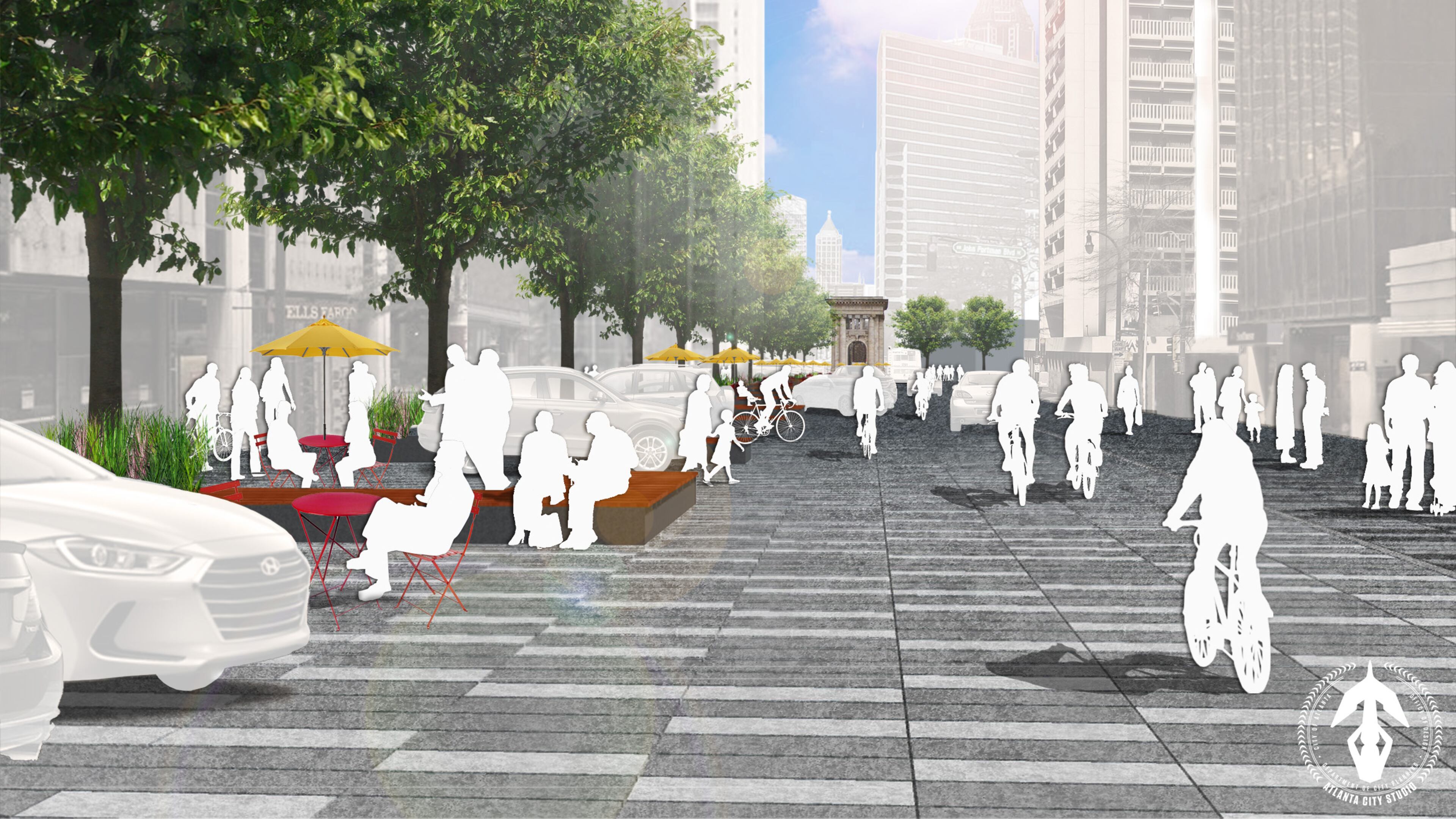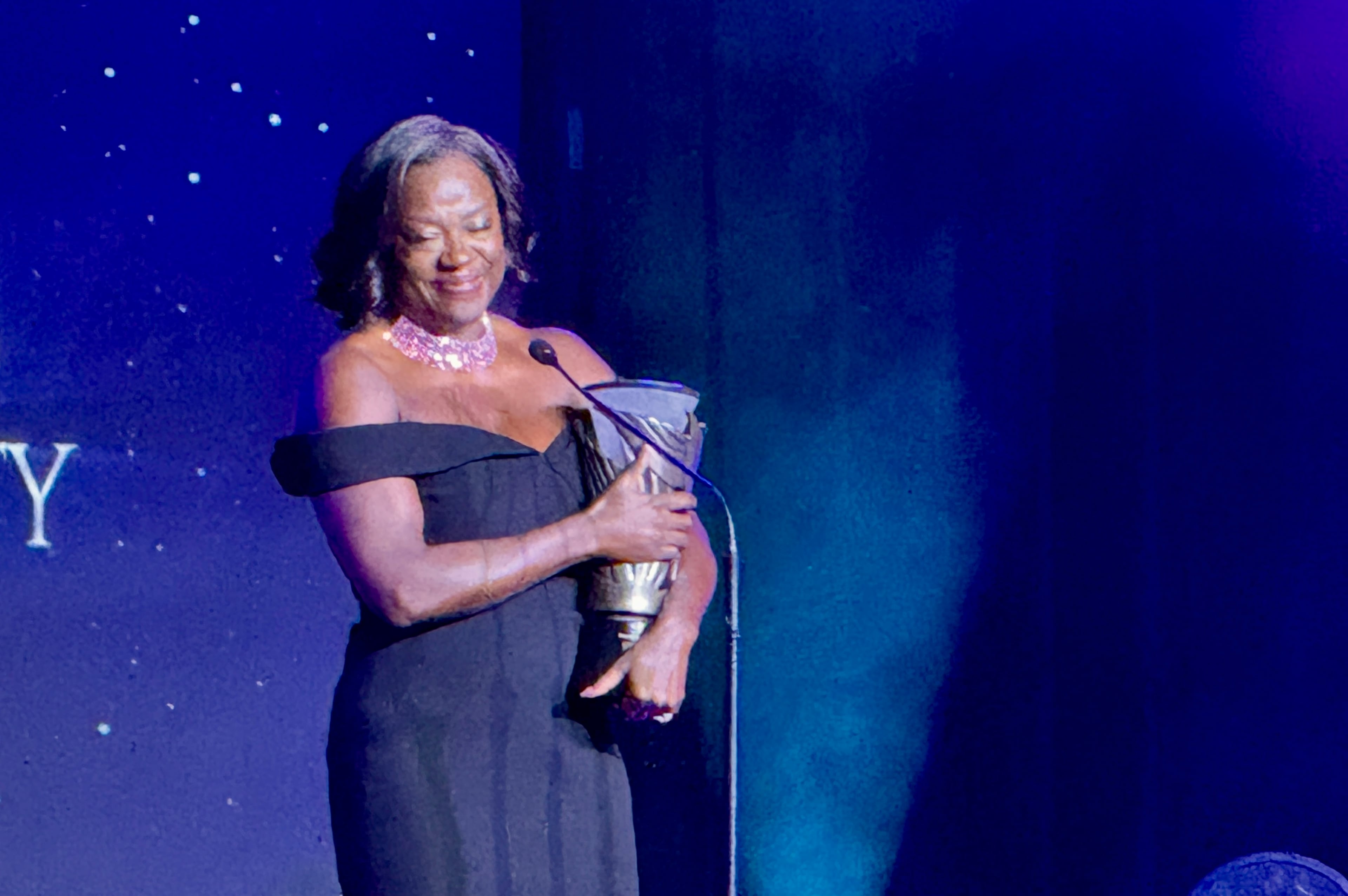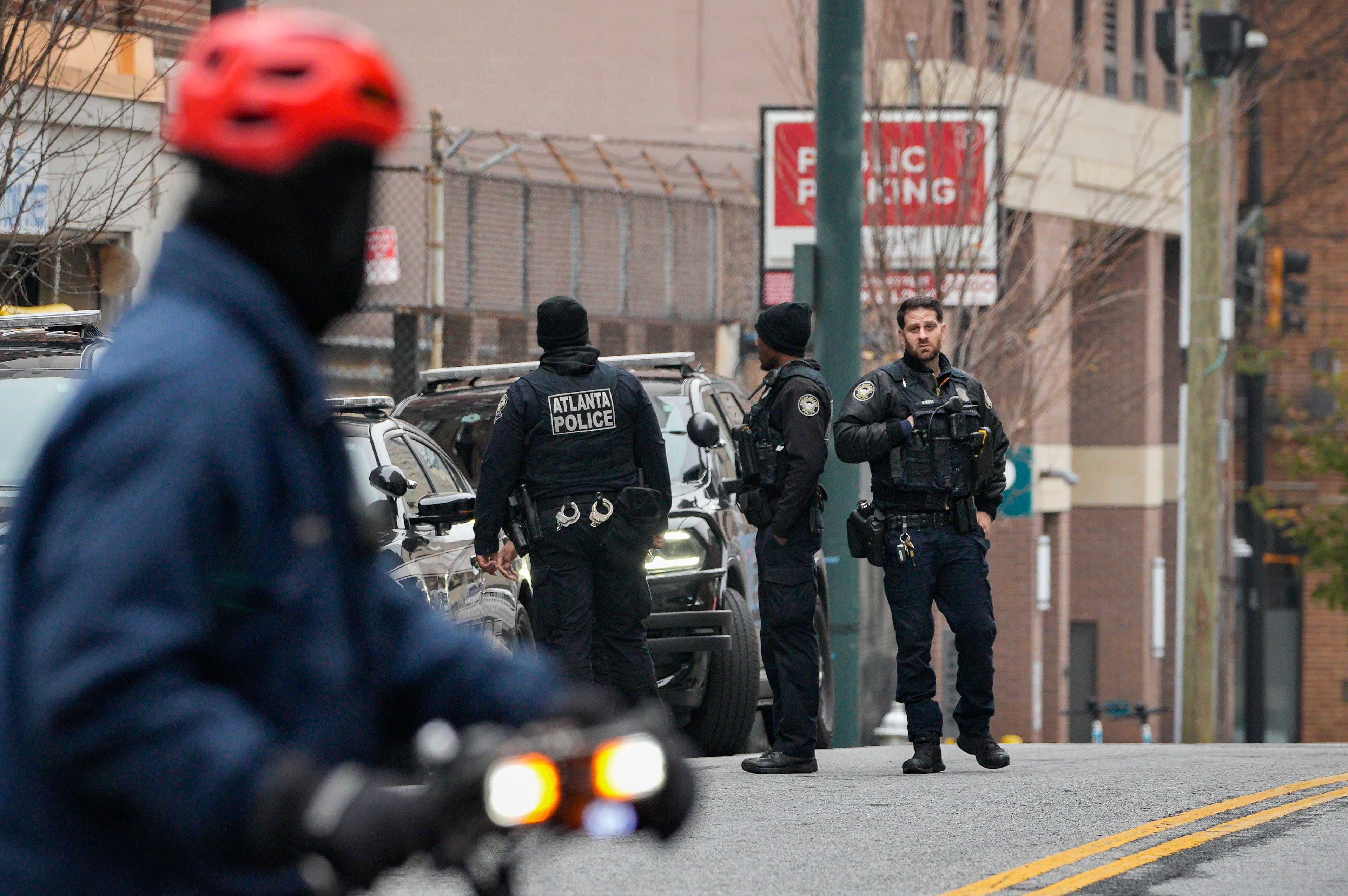A major makeover could be in store for Peachtree Street downtown

It’s more than a bike lane. It’s not just some raised planters with trees.
Under a new proposal, a complete redesign could be in store for what is arguably Atlanta’s most well-known corridor. On Peachtree Street in downtown Atlanta, the Department of City Planning has plans to reimagine a short portion of the road as a “shared space” for walkers, bicyclists and cars.
That might involve eliminating the curb, installing special pavement, reducing car lanes or adding seating along the road — design elements more commonly found on popular pedestrian-friendly stretches in Europe. Officials and residents are hopeful the ambitious project could bring more life to a part of town that can be sleepy at times, while pushing back on Atlanta’s notoriously car-centric nature.
“We want to make the street one that is inviting and, by the design of the street itself, it enables more of a vibrant street life,” said Tim Keane, the commissioner of Atlanta’s Department of City Planning. Right now, he said, Peachtree “for the most part ... is not a lively, urban place.”

The city is still relatively early in the process, so officials are not yet able to estimate how much this could cost or when it could be completed, but Keane said the project should be doable budget-wise. The city has been studying the concept for a few years, and publicly kicked off the initiative last week with public presentations to get input from residents.
For now, the city is studying a 1.2-mile stretch of Peachtree Street from North Avenue, near the Fox Theatre, to Marietta Street, around Woodruff Park. That will help determine what portion of the road would be best as a shared space, and how feasible the project is.
Officials will continue to gather feedback through December, eventually coming up with possible designs that could be tested on Peachtree in the spring.
The city cited Bell Street in Seattle and Exhibition Road in London as inspirations. There, walkers and bikers take priority, with special paving denoting that cars should drive slower. They also have public seating areas for patrons at local businesses.
Right now, much of Peachtree Street is four or five lanes, with sidewalks on either side and crosswalks every several hundred feet — not very pedestrian friendly, said Darin Givens, a former downtown resident who co-founded ThreadATL, an urbanism advocacy organization.
“Atlanta is known for its regional sprawl and being a very car oriented area. ... It can make the street very uninviting,” Givens said. He likes the idea of Peachtree becoming “a place where cars and pedestrians and bicyclists can have this kind of slow, safe interaction with each other.”
Residents are also hopeful the redesign could attract more people to parts of downtown that are not as popular as one might imagine for a city center. In late September, the Atlanta Downtown Neighborhood Association sent a letter to Mayor Keisha Lance Bottoms saying they felt like city services had dried up, especially during COVID-19.

“It’s really sad,” said Pam Revie-Pettersen, who moved to Peachtree Street about eight years ago and is now on the board of the ADNA. The organization would like to see better cleanup and code enforcement, which neighbors think could spur more economic development.
She said she and her neighbors are thrilled at the idea of redesigning Peachtree, but she said she has a “file cabinet full of plans” that never came to fruition.
“I’d just like them to do something.”
Bottoms is also supportive of the idea.
”This is a good opportunity, especially with where we are with COVID, and how we are trying to become a more pedestrian-friendly city,” she said during a press conference with local media last week.

Councilman Amir Farokhi, who represents much of downtown, is confident Atlanta drivers would be able to adjust to a slower Peachtree Street — even if it’s not what they’re used to. He pointed out that over 100 years ago, Peachtree was shared by streetcars, pedestrians and automobiles.
The councilman also predicted a redesign wouldn’t have a huge impact on traffic, even if car lanes are reduced; Peachtree is usually not as clogged as other Atlanta thoroughfares, and is bordered by parallel roads that could serve drivers instead. Farokhi said he has talked with members of the city’s planning department, and told them: “Let’s not be timid and let’s put our foot to the gas, and make this happen in some capacity.”
A serious redesign would “inevitably benefit downtown,” Farokhi said in an interview, “and help address some of the frustration that exists today.”



